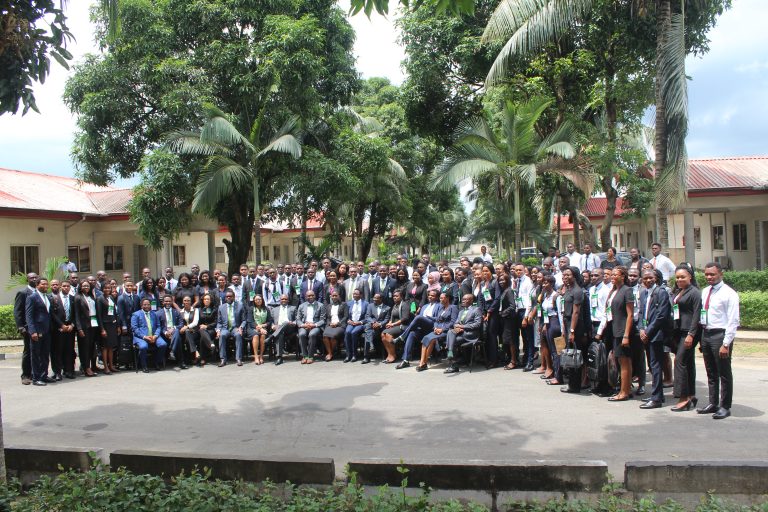GRANDIS 5STAR LUXURY APARTMENT & SUITES SET TO REDEFINE LIVING IN VICTORIA ISLAND
Set to Rise elegantly against the Lagos skyline, is the Grandis 5Star Luxury Apartment & Suites. According to Adejuwon Ademola, The General Manager of the Development company, it is more than just a residential building
“it’s a lifestyle statement. Standing 17 floors high in the heart of Victoria Island, this revolutionary masterpiece of modern architecture will offer a panoramic 360° view of Eko Atlantic, Victoria Island, and Ikoyi, transforming every apartment into an exclusive penthouse experience for the world’s most discerning elite.”

Developed by Dumarco Construction Limited, a globally acclaimed company with decades of delivering complex, high-value projects in the highly regulated petroleum, oil, and gas industries, Grandis 5Star brings unmatched international safety standards, uncompromising quality, and timeless elegance into Nigeria’s luxury property market.
> “When you live in Grandis, you’re not just buying a home—you’re investing in peace of mind, world-class safety, and an effortless luxury experience that will remain pristine for decades,” says Adejuwon A. Ademola, General Manager of Dumarco Construction Limited.
The Gold Standard in Safety and Quality
Dumarco’s roots in the oil and gas sector mean the company operates to some of the strictest safety protocols in the world. Every stage—from conceptualization, design, construction, to long-term maintenance—follows internationally accepted procedures and quality assurance measures. Cutting corners is simply not in Dumarco’s vocabulary.
> “In the oil and gas industry, there’s no room for compromise. We’ve brought that same discipline and zero-tolerance for mediocrity into property development,” says Ademola. “That’s why Grandis will be one of the safest and most enduring residential developments in Nigeria.”
To ensure transparency and prevent (project complacency), Dumarco deliberately separates the developer, contractor, and consultant roles, engaging only the most competent professionals in each respective field. Dumarco’s project team includes globally recognized contractors such as Julius Berger, Cappa & D’Alberto, and Elalan, Migliore Construczione & Tecniche (MC&T) and their partners VENCO IMTIAZ CONTRACTING COMPANY (VICC) based in Dubai, UAE, Business Contracting Limited, alongside leading consultants like Morgan Omanitan & Abe, LAMBERT, and James Cubitt.
Grandis – Investments, appreciation, returns and profitability
Our selection process for the location of the project alone was pains-taking and completely thorough scientific process. Top professional companies were employed to conduct a scientific data acquisition and analytical survey of the entire Victoria Island, Ikoyi, Lekki and Eko Atlantic before a project site is selected. Analyzing and acquiring areas developmental charts and trends, studying and gathering historical and present sale prices, rental charge and occupancy rates over a 50 year period from every individual street before the selection of the location of any of our developments especially true for the Grandis Project
He adds,
“Our clients and residents can be rest assured that the location of Grandis has been scientifically proven through all existing data to provide our clients with a 100% occupancy rate, highest developmental location, highest rental income and investment returns. ”
The Grandis Experience
Located minutes away from international corporate headquarters, embassies, and landmarks such as Eko Hotel, Radisson Blu, and the Radisson Red, Grandis offers unmatched convenience for professionals, diplomats, and high-net-worth individuals. Every residence is designed for both indulgence and efficiency, with high-grade finishes, smart-home systems, and private amenities that ensure seamless living.
From sunrise over the Atlantic to the glittering Lagos night skyline, residents will enjoy uninterrupted luxury, supported by discreet and highly trained staff, advanced security systems, and a design that prioritizes comfort and privacy.
> “We designed Grandis for people who want everything—security, elegance, convenience, and the assurance that their home will look as spectacular in 20 years as it does on day one,” Ademola notes.
A Legacy That Lasts
With its combination of visionary architecture, peerless safety, and meticulous maintenance planning, Grandis is built to remain iconic for generations. Thanks to Dumarco’s meticulous approach, the building’s service charges are expected to remain low while its value and appeal continue to appreciate over time.
In a market often marred by shortcuts and substandard practices, Mr Ademola says
Grandis stands as a beacon of what luxury living should be—safe, spectacular, and built to last.
“Grandis 5Star Luxury Apartment & Suites — Where safety meets sophistication, and every detail is designed for a life well-lived.”
He added
Website -www.dumarcoltd.com
Project website – www.26idowutaylor.com
Email [email protected]
Tel / WhatsApp +234 9077777883
GM – Adejuwon A. Ademola


 society5 months ago
society5 months ago
 Politics2 months ago
Politics2 months ago
 society4 months ago
society4 months ago
 society3 months ago
society3 months ago













You must be logged in to post a comment Login